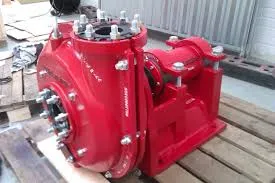Haitian Creole
- Afrikaans
- Albanian
- Amharic
- Arabic
- Armenian
- Azerbaijani
- Basque
- Belarusian
- Bengali
- Bosnian
- Bulgarian
- Catalan
- Cebuano
- Corsican
- Croatian
- Czech
- Danish
- Dutch
- English
- Esperanto
- Estonian
- Finnish
- French
- Frisian
- Galician
- Georgian
- German
- Greek
- Gujarati
- Haitian Creole
- hausa
- hawaiian
- Hebrew
- Hindi
- Miao
- Hungarian
- Icelandic
- igbo
- Indonesian
- irish
- Italian
- Japanese
- Javanese
- Kannada
- kazakh
- Khmer
- Rwandese
- Korean
- Kurdish
- Kyrgyz
- Lao
- Latin
- Latvian
- Lithuanian
- Luxembourgish
- Macedonian
- Malgashi
- Malay
- Malayalam
- Maltese
- Maori
- Marathi
- Mongolian
- Myanmar
- Nepali
- Norwegian
- Norwegian
- Occitan
- Pashto
- Persian
- Polish
- Portuguese
- Punjabi
- Romanian
- Russian
- Samoan
- Scottish Gaelic
- Serbian
- Sesotho
- Shona
- Sindhi
- Sinhala
- Slovak
- Slovenian
- Somali
- Spanish
- Sundanese
- Swahili
- Swedish
- Tagalog
- Tajik
- Tamil
- Tatar
- Telugu
- Thai
- Turkish
- Turkmen
- Ukrainian
- Urdu
- Uighur
- Uzbek
- Vietnamese
- Welsh
- Bantu
- Yiddish
- Yoruba
- Zulu
Telephone: +86 13120555503
Email: frank@cypump.com
Nov . 07, 2024 22:26 Back to list
Investigating the Benefits and Uses of Closed Impeller Design in Pump Technology
Exploring the Advantages and Applications of Closed Impeller Pumps
Closed impeller pumps are vital devices in various industrial and commercial applications, prominently used in water supply systems, chemical processing, and HVAC systems. Their design, characterized by blades that are enclosed on both sides, allows for improved hydraulic performance and efficiency. This article delves into the advantages of closed impeller pumps and explores their diverse applications.
One of the primary advantages of closed impeller pumps is their enhanced efficiency. The design minimizes fluid turbulence, allowing for smoother and more controlled flow. This results in a higher flow rate and better overall performance. The closed nature of the impeller also helps maintain pressure within the system, making these pumps highly effective for handling fluids at a consistent rate. This efficiency translates to lower energy consumption and reduced operational costs, making closed impeller pumps an economical choice for many industries.
Moreover, closed impeller pumps are known for their versatility in handling various types of fluids. Whether it's water, chemicals, or slurries, these pumps can be engineered to suit different processing needs. The closed impeller design can adapt to varying viscosity levels, making it suitable for both low and high-viscosity fluids. This adaptability widens the scope of industries that can benefit from their use, including agriculture, pharmaceuticals, and food processing.
'exploring the advantages and applications of closed impeller ...'

Closed impeller pumps also demonstrate higher reliability and longevity compared to other types of pumps. The enclosed design protects the impeller blades from external damage and wear caused by debris or cavitation. This durability ensures that the pumps have a longer operational life and require less frequent maintenance, reducing downtime and enhancing productivity. Furthermore, closed impeller pumps are less prone to leakage, which is crucial when working with hazardous or corrosive fluids. This safety feature not only protects the pump itself but also ensures the safety of workers and the environment.
In terms of installation and space requirements, closed impeller pumps are often more compact than their open impeller counterparts. This saves valuable space in facilities where multiple pumps are needed, such as in municipal water treatment plants or industrial manufacturing sites. Their design also lends itself well to integration within existing systems, allowing for easier upgrades and modifications without significant alterations to the infrastructure.
The applications of closed impeller pumps are extensive. In the municipal water supply sector, they are commonly used for water distribution and wastewater management. Their ability to efficiently move large volumes of water while maintaining pressure makes them indispensable in these settings. In the chemical and pharmaceutical industries, closed impeller pumps are crucial for transferring delicate, highly reactive, or viscous liquids without compromising their integrity. In HVAC systems, these pumps ensure the effective circulation of water in heating and cooling processes, contributing to energy efficiency and temperature control.
In conclusion, closed impeller pumps are integral to numerous applications across various industries due to their efficiency, reliability, and versatility. Their ability to handle a wide range of fluids while maintaining high performance and low operational costs makes them an attractive option for businesses looking to enhance their processes. As technology continues to evolve, the improvements in closed impeller design and materials will likely lead to even more advanced applications, reinforcing their place as a crucial component in the modern industrial landscape.
-
Durable & Efficient Submersible Mixed Flow Propeller Pumps Quotes
NewsApr.29,2025
-
BPA-Free Sand Gravel Pump for Aquariums & Industrial Use Terapump
NewsApr.29,2025
-
High-Efficiency Big Capacity Double Suction Pumps Bulk Supply
NewsApr.28,2025
-
High-Performance Vapor Honing Slurry Pumps Durable & Efficient Solutions
NewsApr.28,2025
-
OEM Slurry Pump Engineering Factory Custom Solutions & Durable Pumps
NewsApr.28,2025
-
1HP Sewage Submersible Pump Durable Vertical & WQ/QW Models Supplier
NewsApr.28,2025










